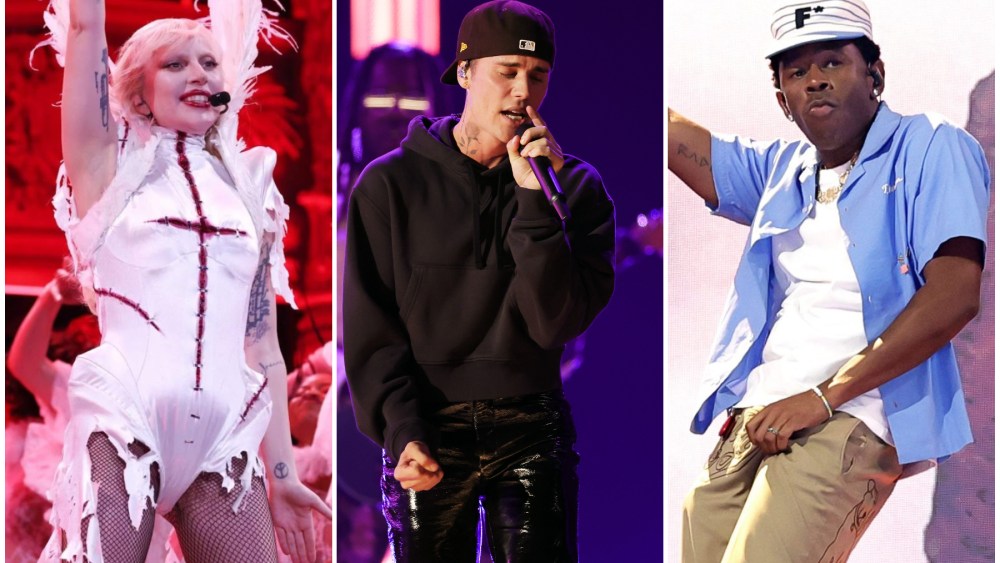When Beyoncé announced her eighth album, “Cowboy Carter,” in February 2024, fans were quick to argue — and argue — over whether it would be a straightforward country record. Following its release, it became clear that “Cowboy Carter” wasn’t just one genre, but many. Beyoncé herself reinforced that when it came time for first-round Grammy submissions, entering eight songs from the set across country, R&B, Americana, hip-hop and pop categories.
The increasing diversification of genres is nothing new in the music space, as the democratization of what’s popular has gradually eroded convention. But the byproduct of that evolution has opened new lanes for artists submitting to the Grammys across genre lines — musical chairs, if you will, for a generation of artists whose experimentation could lead to more opportunities in the awards race.
This year, a growing number of contenders have released albums that could easily end up in various genre categories. Tyler, the Creator dropped a pair of albums, “Chromakopia” and “Don’t Tap the Glass,” which landed him in rap and pop. Justin Bieber’s “Swag” was a compendium of genres — not quite pop, not quite R&B — and was submitted for both, while Laufey, who won in the pop category earlier this year, has consistently challenged listeners looking to fit her music into one box. Her latest, “A Matter of Time,” was submitted in jazz and pop, and she appears in American roots for her feature on Role Model’s “The Longest Goodbye.” Even Lady Gaga is hedging her bets, submitting cuts from “Mayhem” in pop, dance and rock.
“Spread the net far and wide. Why not? It only helps the artists, it helps the DSPs [digital service providers],” says Simon Tikhman, co-CEO and co-founder of The Core Entertainment. His artist, country musician Bailey Zimmerman, scored his biggest hit this year with “All the Way,” a duet with rapper BigXthaPlug. That song impacted across pop, country and rhythmic radio, and was placed on Spotify’s Rap Caviar and pop playlists. “I always say, are you Blockbuster or are you Netflix? Are you going to adapt to what’s going on and what’s in front of you? Or are you going to continue to tell people to come on a Friday night and rent a movie? You gotta adapt because I think the music industry is constantly changing and evolving, as it always has,” says Tikhman.
In the past, genre submissions have been a point of contention for artists — Bieber, for instance, complained in 2020 that his album “Changes” was placed in pop instead of R&B — yet it’s becoming less of an issue as artists skirt a one-size-fits-all approach. Part of that can be attributed to streaming services and the algorithm, which can serve up a song to a wider audience if it checks more than one box.
“When you log into Spotify or Apple, there’s so many more genres that are just put in front of you at once,” says Mikelle Schwartz, exec VP of marketing at Nice Life Recording Co., which counts Lizzo, Tinashe and the Marías as clients. “Ultimately, the algorithm is going to lead you towards discovering new artists because of what you’re listening to and because artists are involved in so many different genres. It’s almost like a choose-your-own-adventure.”
As to the benefit of trying your luck in multiple genre categories, other than taking home more trophies? “I think if it’s authentic to who you are as an artist, and those different genres are present in your music, you’d almost be remiss not to,” says Schwartz. “Because it’s not acknowledging the work that you’ve put into your album and your baby.”

